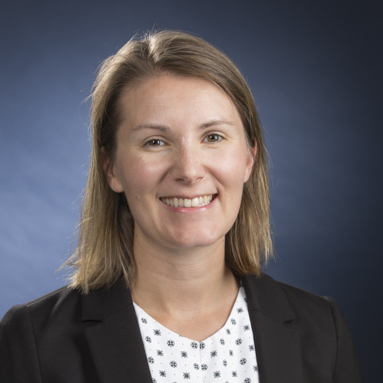Members of the Worcester Polytechnic Institute faculty and staff were honored for their achievements and service to the university at the April 28 annual Faculty Honors Convocation at the Rubin Campus Center.
Secretary of the Faculty Mark Richman speaks at WPI's 2023 Faculty Honors Convocation.
2023 Annual Awards Honor WPI Faculty and Staff

Elizabeth Ryder
Elizabeth Ryder, professor in the Department of Biology and Biotechnology, received the Chair's Exemplary Faculty Prize, which recognizes faculty members who excel at teaching, research, scholarship, and student advising. Read the award citation here.

Jon Abraham
Jon Abraham, professor of practice in the Department of Mathematical Sciences, received the Trustees’ Award for Outstanding Teaching. The award recognizes faculty members who have demonstrated excellence in teaching coupled with outstanding professional contributions. Read the award citation here.

Stephen Kmiotek
Stephen Kmiotek, professor of practice in the Department of Chemical Engineering, received the Trustees’ Award for Outstanding Academic Advising. The award honors faculty members for the role they play in guiding and mentoring students. Read the award citation here.

Kate Beverage
Kate Beverage, director of Technology for Teaching and Learning in the Academic Technology Center, received the Denise Nicoletti Trustees’ Award for Service to the Community. The award is named for the first tenure-track female faculty member in WPI’s Department of Electrical and Computer Engineering, who also was co-founder of Camp Reach, a summer engineering and science program for girls. Read the award citation here.

Jeanine Skorinko

Frederick Bianchi
Jeanine Skorinko and Frederick Bianchi received the Trustees’ Award for Outstanding Research and Creative Scholarship. Skorinko is a professor in the Department of Social Science and Policy Studies. Read her award citation here. Bianchi is a professor in the Department of Humanities and Arts. The award honors outstanding teaching, research and creative scholarship, academic advising, and service to the community. Read his award citation here.

Angela Rodriguez

Rebecca Moody

Lindsay Greer Davis
Angela Rodriguez, Rebecca Moody and Lindsay Greer Davis received Romeo L. Moruzzi Young Faculty Awards for Innovation in Undergraduate Education. The award is named for Romeo L. Moruzzi, who was a professor of electrical engineering and a founder of the WPI Plan. Honorees are early-career faculty members who are recognized for specific innovations or improvements to undergraduate education at WPI. Rodriguez is an assistant professor in the Department of Social Science and Policy Studies. Read her award citation here. In the Department of Humanities and Arts, Moody is an assistant teaching professor and Davis is an assistant professor of teaching. Read their award citation here.
Learn more about WPI faculty






Faculty members and senior administrators are available to offer ideas, opinions, analysis, and commentary on issues ranging from higher education to current events, trending topics, and breaking news.
Topics
Offices and Departments















